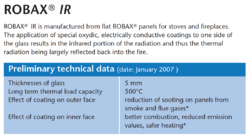Hogwildz
Minister of Fire
If clear when wet, and haze after drying, it is most likely etched. Had the same issue with my first glass years ago, due to cleaning while not cool or cold.
Although some profess doing so, I will not clean my glass with wet rag and ashes due to just this issue.
The only way to assure you wont etch the glass, is clean it while cool/cold, using a clean, soft rag and glass cleaner/polish. Most good cleaners are same stuff as glass top range cleaner.
Always read how some are too cheap to spend a few bucks on correct cleaner, and advising using ash for free. That is great until the glass gets etched. The replacement glass will cost much more than the money they saved on cleaner, using ash. Just my opinion of course. Never had etching problems since the first glass, and changing my cleaning habits.
Once it is etched, It's etched, there is no going back.
My comments are not directed towards you or anyone else for that matter, just a general statement.
Although some profess doing so, I will not clean my glass with wet rag and ashes due to just this issue.
The only way to assure you wont etch the glass, is clean it while cool/cold, using a clean, soft rag and glass cleaner/polish. Most good cleaners are same stuff as glass top range cleaner.
Always read how some are too cheap to spend a few bucks on correct cleaner, and advising using ash for free. That is great until the glass gets etched. The replacement glass will cost much more than the money they saved on cleaner, using ash. Just my opinion of course. Never had etching problems since the first glass, and changing my cleaning habits.
Once it is etched, It's etched, there is no going back.
My comments are not directed towards you or anyone else for that matter, just a general statement.
Last edited:


